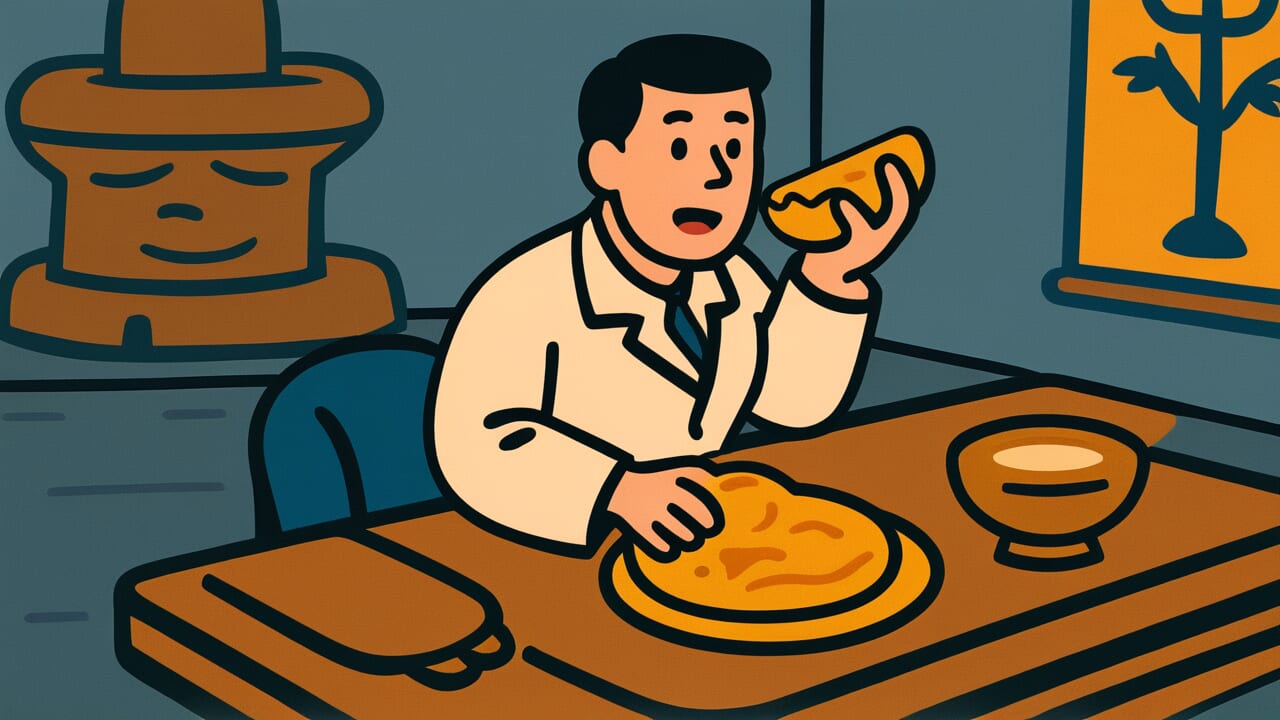How to Read “Both bitter and painful things come from eating”
Urei mo tsurai mo kūte no ue
Meaning of “Both bitter and painful things come from eating”
This proverb teaches that even when you face worries or painful situations, you should eat first before thinking about them.
When people encounter troubles or suffering, they sometimes become so consumed by worry that they can’t even eat. However, trying to think things through on an empty stomach prevents clear judgment.
Instead, your physical strength drops and your mood sinks. This makes problems seem even more serious than they really are.
The proverb emphasizes the importance of stopping and eating properly, especially during such times. Eating restores your physical strength and creates mental space.
Then, problems that seemed hopeless just moments ago start to look different from a new angle.
You can use this saying when encouraging someone crushed by worries or when motivating yourself. Even today, it reminds us how important basic life habits are during difficult situations.
Origin and Etymology
The exact first appearance of this proverb in written records remains unclear. However, the structure of the phrase offers interesting insights.
The words “bitter” and “painful” represent mental suffering. These contrast sharply with “from eating,” which describes a concrete, physical action.
The expression “kūte no ue” means “after eating.” This phrase strongly reflects the life sensibilities of common Japanese people.
In Japan before the Edo period, meals were not just nutrition. They represented the very power to live.
Famine and poverty were close realities in those times. People learned through experience how dangerous it was to think about things while hungry.
This saying also contains special meaning about the act of eating. Eating is the most basic act for maintaining life.
No matter how disturbed your mind becomes, taking care of your body remains crucial. This reflects an Eastern view that mind and body cannot be separated.
The teaching to “eat first, then think” represents practical wisdom from our ancestors. It tells us to return to basics when facing difficulties.
Usage Examples
- I’m shocked about failing the exam, but both bitter and painful things come from eating, so let me eat first
- I told my colleague who was depressed about a big mistake at work that both bitter and painful things come from eating
Universal Wisdom
Behind this proverb lies a universal truth. The human mind and body are deeply connected.
We tend to think of ourselves as spiritual beings. But actually, our minds rest on the foundation of our physical bodies.
Hunger dulls our judgment. Fatigue steals our hope. Our ancestors learned this fact not through theory but through daily life.
What’s interesting is that this proverb doesn’t say “forget your worries.” It doesn’t deny troubles or pain.
Instead, it says “face them after eating.” This isn’t about running from problems. It’s about preparing yourself to confront them in a better state.
Humans are fragile creatures. That’s why we need to care for our bodies when facing difficulties.
The power to recover lives within the everyday act of eating. This teaches us not to seek special solutions but to do ordinary things ordinarily.
This proverb also contains a concept of time. “Kūte no ue” or “after eating” gives you permission not to find answers immediately.
Rather than making rushed decisions, take a breath and then think. This breathing room has probably prevented many life mistakes.
When AI Hears This
The human brain makes up only about 2 percent of body weight. Yet it consumes 20 percent of all the energy the body uses.
Particularly noteworthy is the prefrontal cortex, which processes worries and painful emotions. This part of the brain consumes the most energy.
In other words, feeling “bitter” or “painful” emotions is actually a physical process that burns massive amounts of glucose.
When hungry, the energy available to the brain drops dramatically. The brain then prioritizes functions necessary for survival.
It cuts supply first to “luxury functions” like emotional processing and complex thinking. This explains why we get irritable or can’t think clearly when hungry.
Put differently, worrying itself is an advanced brain activity that only becomes possible with sufficient nutrition.
Even more interesting is how nutritional status affects cortisol secretion. Cortisol is a stress hormone.
In a malnourished state, you can’t even produce the hormones needed to handle stress properly.
This proverb intuitively grasped a truth that modern neuroscience has proven. Abstract things like emotions completely depend on matter and energy.
Lessons for Today
In modern society, we often put meals aside because we’re too busy. Especially when facing problems, we tend to skip meals thinking “I don’t have time for that.”
However, this proverb teaches us something important. During difficult situations, maintaining basic life habits becomes even more crucial.
If you’re carrying worries right now, stop and eat something first. This isn’t escape. It’s an act of caring for yourself.
Don’t sacrifice yourself to solve problems. First, strengthen your foundation. Doing so will help you find better answers.
This proverb also connects to kindness toward others. Rather than telling worried people to “hang in there,” inviting them to “eat together” sometimes offers greater support.
The everyday act of eating holds the power to heal people.
No matter how big the problem, you don’t need to face it while hungry. Eat first, then think.
Just remembering this simple truth might make life a little easier.



Comments